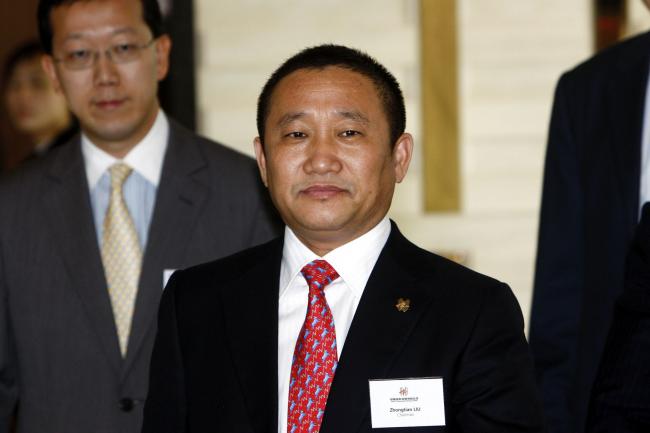(Bloomberg) -- China Zhongwang Holdings Ltd. fell as much as 21% in Hong Kong after the aluminum firm’s billionaire owner was charged by U.S. prosecutors with evading $1.8 billion in American anti-dumping tariffs.
Liu Zhongtian, the former president and chairman of Zhongwang, Asia’s largest aluminum extrusion company, lied to U.S. customs agents to avoid duties imposed in 2011 on certain types of aluminum imported into the U.S. from China, according to a statement Wednesday from U.S. Attorney Nicola Hanna in Los Angeles after a grand jury indictment was unsealed.
The company’s decline in the first ten minutes of trading wiped out this year’s gain and saw shares touch their lowest since 2016.
“This indictment outlines the unscrupulous and anti-competitive practices of a corrupt businessman,” prosecutors said in the statement.
Liu, 55, is believed to be in China, said Thom Mrozek, a spokesman for the U.S. attorney.
The aluminum extrusions were disguised when they were shipped to the U.S. as pallets to qualify them as finished goods and avoid customs duties of as much as 400%, according to the prosecutors. The company and Liu are accused of orchestrating bogus sales of the 2.2 million imported pallets, which were actually stockpiled in Southern (NYSE:SO) California because there was no demand for them.
A Hong Kong-based spokeswoman for Zhongwang, which is based in Liaoyang, Liaoning on the mainland, declined to comment.
Liu and the company would direct that aluminum melting facilities be built and acquired to reconfigure the pallets into a form with commercial value, according to the indictment.
Money Laundering
Prosecutors also allege Liu was behind a “massive” money-laundering scheme. One of his associates was charged with evading income taxes on more than $9 million he received in 2015. He took a plea deal in exchange for cooperation with federal investigators, prosecutors said.
Hundreds of millions of dollars were allegedly funneled through shell companies, which were then directed to aluminum companies in the U.S. that Liu ran, according to the indictment.
Zhongwang, controlled by Liu, has run into other regulatory issues in the U.S. In 2016, the Commerce Department found that it withheld information during its investigation of the company’s aluminum shipments and impeded proceedings. Zhongwang President Lu Changqing said then that his firm didn’t participate in the inquiry because it stopped making the products cited in early 2015.
The Commerce Department findings came just as Liu was seeking to buy Cleveland-based aluminum parts maker Aleris Corp. in what could have been China’s biggest-ever purchase of an overseas metals processor. The deal was terminated a year later, after it failed to get approval from U.S. regulators.
Trump Administration
The case pre-dates the Trump administration’s introduction of steel and aluminum tariffs last year. But it illustrates the problem those tariffs were meant to address.
The U.S. initiated its global tariffs in large part because U.S. producers argued they were unable to compete with a flood of Chinese aluminum and steel onto international markets. Beyond producing a mountain of those metals, Chinese companies were consistently finding ways to evade U.S. anti-dumping tariffs of as much as 400% and other efforts to address the economic threat, according to the U.S. firms.
Canada and Mexico agreed earlier this year to do more to block the trans-shipment of Chinese metals destined for the U.S. as part of a deal with the Trump administration to remove the tariffs. But they are still in place on steel from other major U.S. allies including the European Union and Japan.
Meanwhile, Trump’s trade war with China and the tariffs he has imposed on some $250 billion in imports has led to new efforts by Chinese, U.S. and other companies to find a way around those import taxes, mostly by relocating production.

